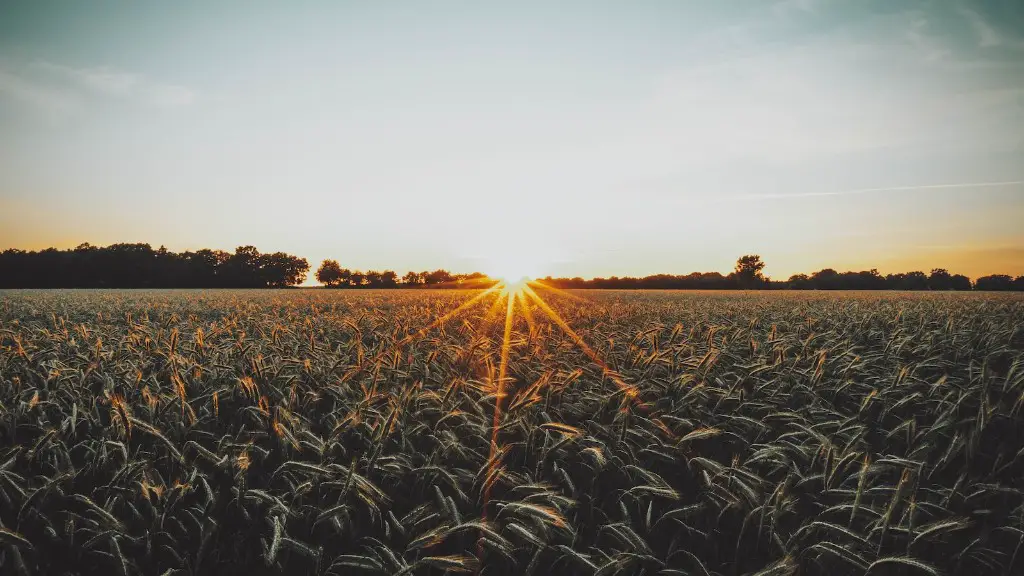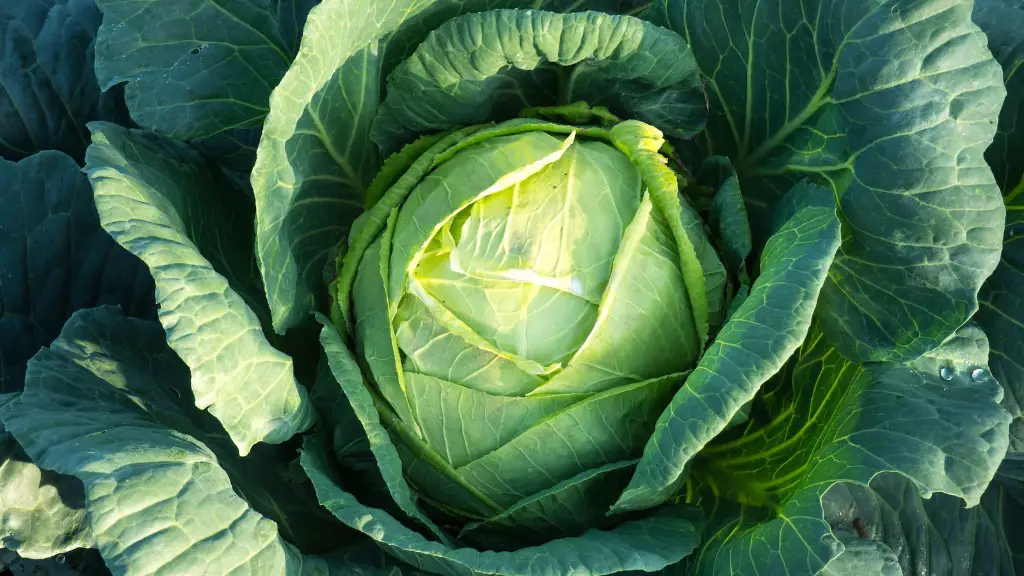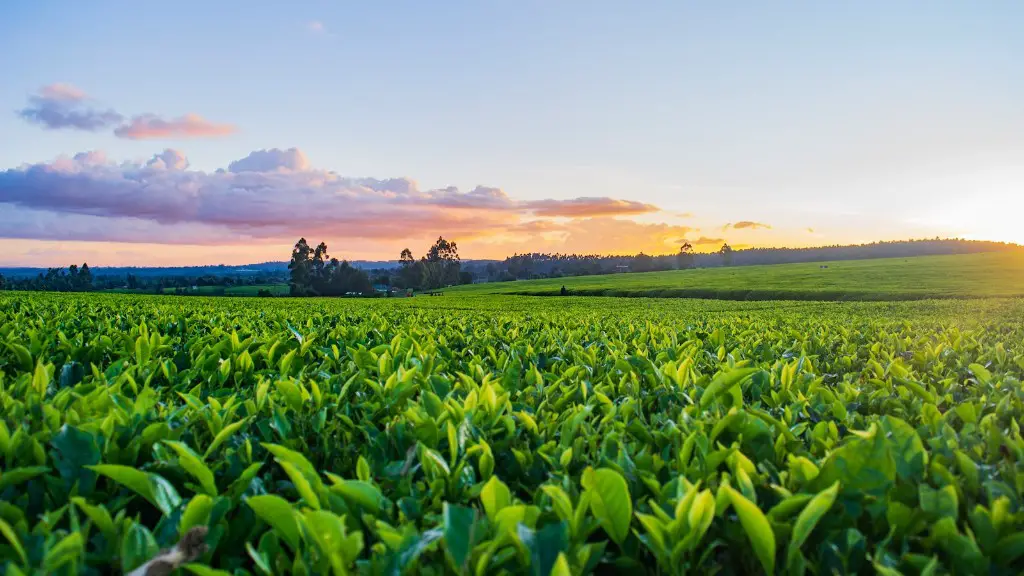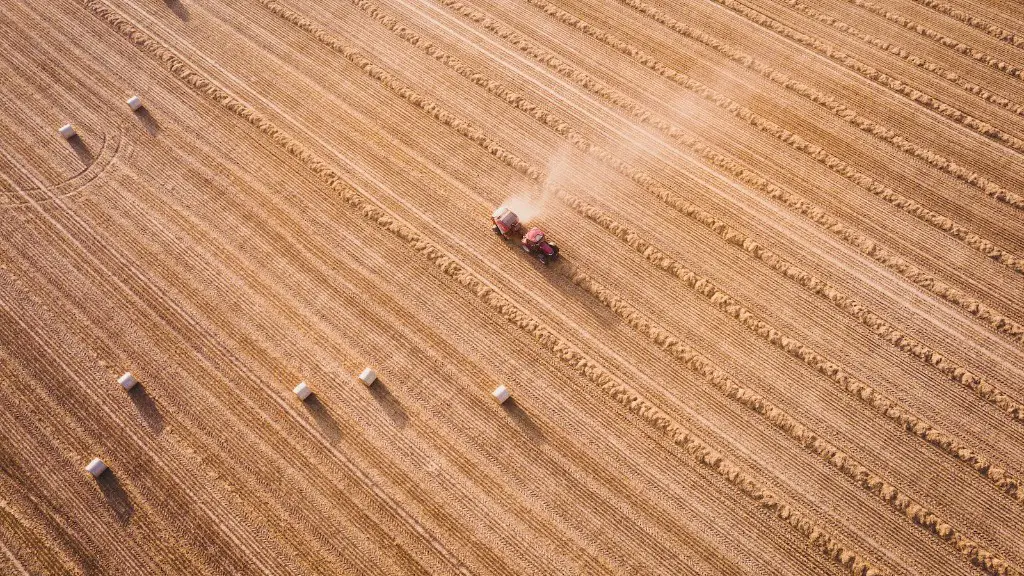Agriculture is a vital part of the global supply chain. It is responsible for producing the food and fiber that are used to make the products we use every day. Without agriculture, the world would not be able to function.
The global supply chain is a complex network of businesses and processes that are involved in the production and distribution of goods and services. Agriculture is a critical part of this process, as it is responsible for producing the raw materials that are used to create the products we rely on.
In a global supply chain, there are many different players involved in the process of getting goods from the point of production to the point of consumption. Agriculture is just one part of this process, but it is a vital one. Without agriculture, the world would not be able to function.
Agricultural goods are an important part of the global supply chain. They are used to produce food, feed animals, and make different products. Farmers and companies that produce agricultural goods typically sell them to other countries. This allows countries to import and export goods, which helps the global economy.
How is agriculture involved in the global economy?
Agriculture plays a vital role in society and the economy. It provides food for people to eat, raw materials for products, and jobs for people to do. Agriculture also has a strong impact on the environment. It can help to conserve natural resources, improve soil and water quality, and provide wildlife habitat.
The agriculture supply chain is a complex and critical system that includes farmers, transporters, warehouses, retailers, suppliers and consumers. It also includes new product development, operations, distribution, finance, marketing and customer service. This system is responsible for getting food from farms to consumers, and it plays a vital role in ensuring food security. disruptions in the agriculture supply chain can have serious consequences for food security and the economy.
What is global value chain in agriculture
A ‘value chain’ in agriculture identifies the set of actors and activities that bring a basic agricultural product from production in the field to final consumption, where at each stage value is added to the product. The value chain approach can be used to identify and assess the competitiveness of a particular agricultural value chain, and to develop strategies for improving its competitiveness.
Globalization can be a great boon to the agricultural sector in low-income countries. By increasing trade and investment, globalization can help agriculture to grow much faster than domestic consumption. This can provide a major boost to economic growth and reduce poverty.
How does agriculture contribute to international trade?
The agricultural markets and trade landscape is constantly changing, and it is important to monitor these changes in order to ensure that farmers and other stakeholders are able to adapt and thrive. Trade is an important part of the global food system and can help to reduce food insecurity and provide greater choice for consumers. However, the agricultural markets and trade landscape is complex and ever-changing, making it difficult to predict and manage the impacts of these changes.
The global system of agriculture is a complex network of economic, social, and environmental factors that shape the production, distribution, and consumption of agricultural goods around the world. This system is made up of many different players, including farmers, agribusinesses, food processors, retailers, consumers, and government agencies. Each of these players has a different role to play in the global system of agriculture, and each is impacted by the decisions and actions of the others.
The global system of agriculture has a profound impact on the environment, as the production of food requires large amounts of land, water, and other resources. Agriculture is also a major source of greenhouse gas emissions, which contribute to climate change. The way that the global system of agriculture is currently structured is not sustainable in the long term, and it is important to find ways to make it more sustainable.
One way to make the global system of agriculture more sustainable is to support small-scale farmers and promote local food systems. Small-scale farmers are often more environmentally friendly than large-scale industrial farms, and they can provide consumers with fresh, local food. Local food systems are also more efficient than long-distance food transport, and they help to support the local economy.
The global
What are the advantages of supply chain management in agriculture?
The main advantages of supply chain management are:
1. Reduction of product losses in transportation and storage: By managing the supply chain properly, businesses can reduce the amount of product losses that occur during transportation and storage. This can save the company money and increase profits.
2. Increasing of sales: By managing the supply chain properly, businesses can increase sales. This can be done by reducing transportation and storage costs, and by increasing the efficiency of production and distribution.
3. Dissemination of technology, advanced techniques, capital and knowledge among the chain partners: By managing the supply chain properly, businesses can disseminate technology, advanced techniques, capital and knowledge among the chain partners. This can help to improve the overall quality of the supply chain and make it more efficient.
The other challenges like food shortages, pre-/postharvest losses, imbalance in demand versus supply gaps, small land holdings, price rise, consumer demand for safe and quality foods, nutritional security, access to market information for farmers, exposure to global opportunities for free trading or technology are extremely important for the agricultural sector. They need to be addressed in order to ensure the sector’s future viability and success.
Why is supplying important in agriculture
Agriculture is the backbone of the global food supply. It’s responsible for the ingredients in every meal, no matter where in the world it’s eaten. From the corn in tortillas to the rice in sushi, agriculture is the starting point for every food preparation. All roads lead back to agriculture.
High value chains can contribute to food security in the dimensions of access, availability and quality of food primarily by the increase of production volumes, farm diversification, generating higher incomes, reducing postharvest losses, and upgrading technologies to use more efficiently natural resources and .
Why is agricultural value chain important?
The deployment of digital technologies can help smallholder farmers to increase their productivity and incomes. For farmers, these tools can help to address production issues, such as the distribution of seeds, fertilisers and pesticides, and can offer a path to accessing formal financial services.
Digital tools can also help farmers to better manage their land and crops, and to make informed decisions about inputs and cropping patterns. When linked to extension services, digital technologies can help to improve the efficiency and effectiveness of agricultural advisory services.
Digital technologies can help connect smallholder farmers to markets, and can enable better price discovery and transparent pricing. This can help to reduce the costs of marketing and transaction, and can empower farmers to get a better deal in the marketplace.
Digital technologies are becoming increasingly important in the Agricultural sector, and smallholder farmers who are able to take advantage of these tools can benefit greatly in terms of increased productivity and incomes.
The value chain is a process in which a company adds value to its raw materials to produce products eventually sold to consumers. The supply chain represents all the steps required to get the product to the customer. The value chain begins with the raw materials, and then moves on to the company’s manufacturing process, assembly, and packaging. Once the product is complete, it is then shipped to distributors, who in turn sell it to retailers. Finally, the product ends up in the hands of the consumer.
How does globalization impact the agricultural sector
Globalization can have a positive effect on agribusiness jobs in low wage countries by increasing agricultural production faster than domestic consumption. This would build up the sector’s capacity to contribute to food security, through multipliers to the non-tradable, labor-intensive rural economy.
Globalisation is an old phenomenon. It started at the time of colonisation. In the nineteenth century when European traders came to India, during that time as well the Indian spices were exported to different countries of the world and farmers of south India were encouraged and enhanced to grow these crops.
What is the main impact of agriculture?
It is estimated that agriculture is the leading source of pollution in many countries. Pesticides, fertilizers and other toxic farm chemicals can poison fresh water, marine ecosystems, air and soil. They also can remain in the environment for generations. In some cases, these chemicals can accumulate in the food chain and pose a risk to human health.
Reducing pollution from agriculture will require a concerted effort from farmers, government and the general public. Some measures that could be taken include:
-Encouraging farmers to adopt practices that minimize the use of pesticides and other chemicals.
-Improving agricultural management to reduce soil erosion and run-off of pollutants.
-Improving drainage systems to reduce the amount of pesticides and fertilizers that enter waterways.
-Restricting the use of certain chemicals that are known to be harmful to the environment.
-Educating the public about the importance of reducing pollution from agriculture.
There is too much food being produced and not enough people are consuming it all. This has resulted in unsustainable food practices, which is the root of the massive amounts of discarded food within the food production chain. We need to find a way to reduce food waste and increase food security.
Final Words
The global supply chain is immensely complex, and agriculture plays a key role in it. Farmers and agricultural producers provide the raw materials that are used to create all sorts of products, from food and clothing to building materials and medical supplies. The agricultural sector is also a major consumer of goods and services from the rest of the supply chain, such as transportation, packaging, and processing.
Agriculture is an important part of the global supply chain as it is a keystone industry that produces food and other resources that are necessary for the functioning of society. Without agriculture, the world would not be able to support its current population, let alone a growing one. As the population continues to grow and demand for resources increases, it is crucial that the agriculture sector is able to meet these demands. To do so, the sector must be efficient, productive, and sustainable.





